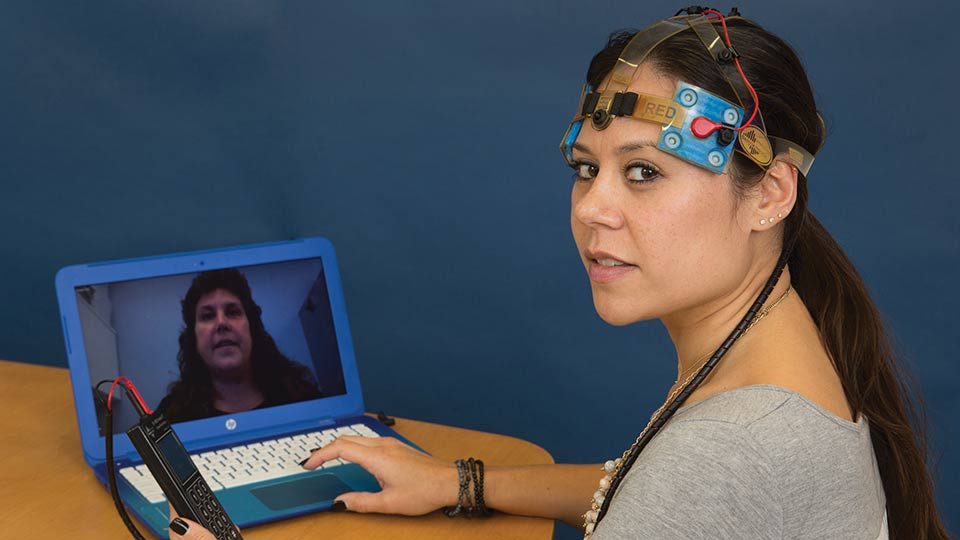October 9, 2017 /
October 6, 2017 – by Ed Tobias

The therapy is called transcranial direct current stimulation, or tDCS, and researchers at the MS Comprehensive Care Center at NYU Langone Health say patients who used it had their fatigue significantly improved. How improved? A drop of almost six points on a 32-point scale that measures fatigue, compared with study subjects who were using a placebo. (This study was published in the Multiple Sclerosis Journal.)
What does tDCS do?
Transcranial direct current stimulation applies a low-amplitude, direct electrical current to the scalp using electrodes nested in a headset. The current targets the brain’s dorsolateral prefrontal cortex, which is an area of the brain that deals with, among other things, memory and attention. The exact mechanism behind tDCS isn’t clear, but it’s thought that it may change the brain’s cortical excitability by making it easier for neurons to fire, thereby making better connections in the cortex.
What did the study do?
According to an NYU Langone news release, 27 people played a cognitive training game that targets the brain’s processing speed and working memory. Fifteen of the participants received the tDCS treatment, while 12 received a placebo. After 20 game sessions, participants reported their level of fatigue. Those receiving tDCS reported, as mentioned earlier, a 5.6-point drop in fatigue. Those receiving the placebo actually saw a 0.9-point increase in fatigue.
“These data are a hopeful sign that we can use tDCS to help patients with MS manage their fatigue, and that continuing the treatment may show even better results,” says lead study author Leigh Charvet, PhD, associate professor of neurology and director of MS research at NYU Langone Health. “Importantly, tDCS can be delivered remotely to patients at home, offering a practical option for patients, especially those with travel limitations and MS-related disability.”
What’s next? – click here to read more
MS Views and News is MAKING an IMPACT for those, affected by Multiple Sclerosis
MS Views and News provides beneficial Multiple Sclerosis education, information, resources and services.
…………………………………………………………………….
Visit our MS Learning Channel on YouTube: http://www.youtube.com/msviewsandnews
Stay informed with MS news and information - Sign-up here
For MS patients, caregivers or clinicians, Care to chat about MS? Join Our online COMMUNITY CHAT




